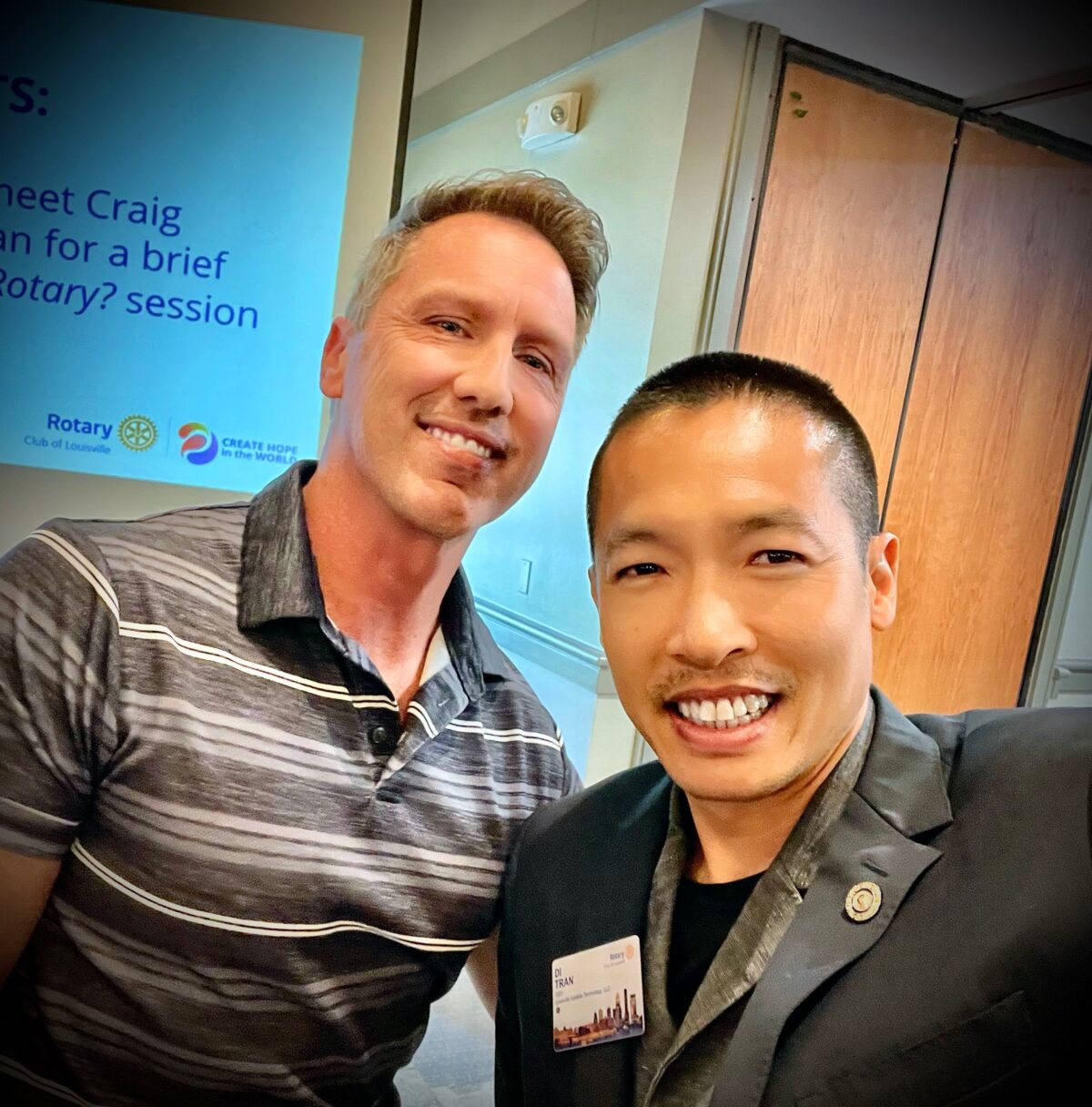Shawn Dawley, president of OT2 Consulting, is an accomplished leader, leadership educator, and keynote speaker committed to empowering leaders at all levels to realize their power, passion, and purpose. His extensive experience, drawn from his roles as a Director and Vice President at a Fortune 100 company, a nationwide firm, and a 25-year stint as a combat pilot, commander, and inspector general in the United States Air Force, paints a rich tapestry of leadership and resilience.
At a recent gathering at the Rotary of Louisville, Dawley, a former Fellow at Harvard University with a diverse educational background, shared a profoundly insightful speech that resonated deeply with the audience, and particularly with Di Tran, author of “Drop the ME and focus on the OTHERS” and the soon-to-be-released “Drop the FEAR and focus on the FAITH.”
Dawley began his discourse by discussing the roots of insecurity. He proposed that insecurity is fundamentally rooted in fear—a primal, inherent emotion, often intensified during our formative years. This perspective struck a chord with Tran, who has spent his literary career examining the internal mechanisms that hinder and facilitate human growth. He affirms that understanding fear as a natural and nurtured response can help individuals confront their insecurities more empathetically and effectively.

Building on this, Dawley then presented the intriguing concept that an eternal “baby” or “inner child” lives within every adult. This nascent persona, shaped by our earliest experiences, can be a source of strength or a trigger for shame. Tran echoed this sentiment, noting that acknowledging our inner child can empower us, providing a reservoir of resilience. However, if left unaddressed, this same inner child can also harbor debilitating shame. In his upcoming book, Tran aims to further explore how acknowledging and embracing our fears and insecurities can lead us towards a path of unshakeable faith.
Dawley, leveraging his decades of leadership experience across the cockpit, combat, command, and corporate sectors, underscored a powerful parenting mantra: “You grew up with a shower of love, not pity.” As a parent himself, Tran found this adage deeply resonating. He believes that cultivating an environment of love, rather than one steeped in pity or shame, allows children to flourish and tackle their fears more confidently. This concept aligns seamlessly with Tran’s philosophy, as expressed in his first book, where He advocates focusing on others’ strengths and fostering a supportive, nurturing environment.
In conclusion, Shawn Dawley’s enlightening speech offered a refreshing perspective on understanding our fears, embracing the inner child, and harnessing love as an empowering tool. For Tran, these insights not only reinforced his beliefs but also sparked new contemplations for his next literary endeavor. As we anticipate his upcoming book, these reflections serve as a timely reminder of our shared human experiences, inspiring us to navigate life with empathy, understanding, and above all, love.







